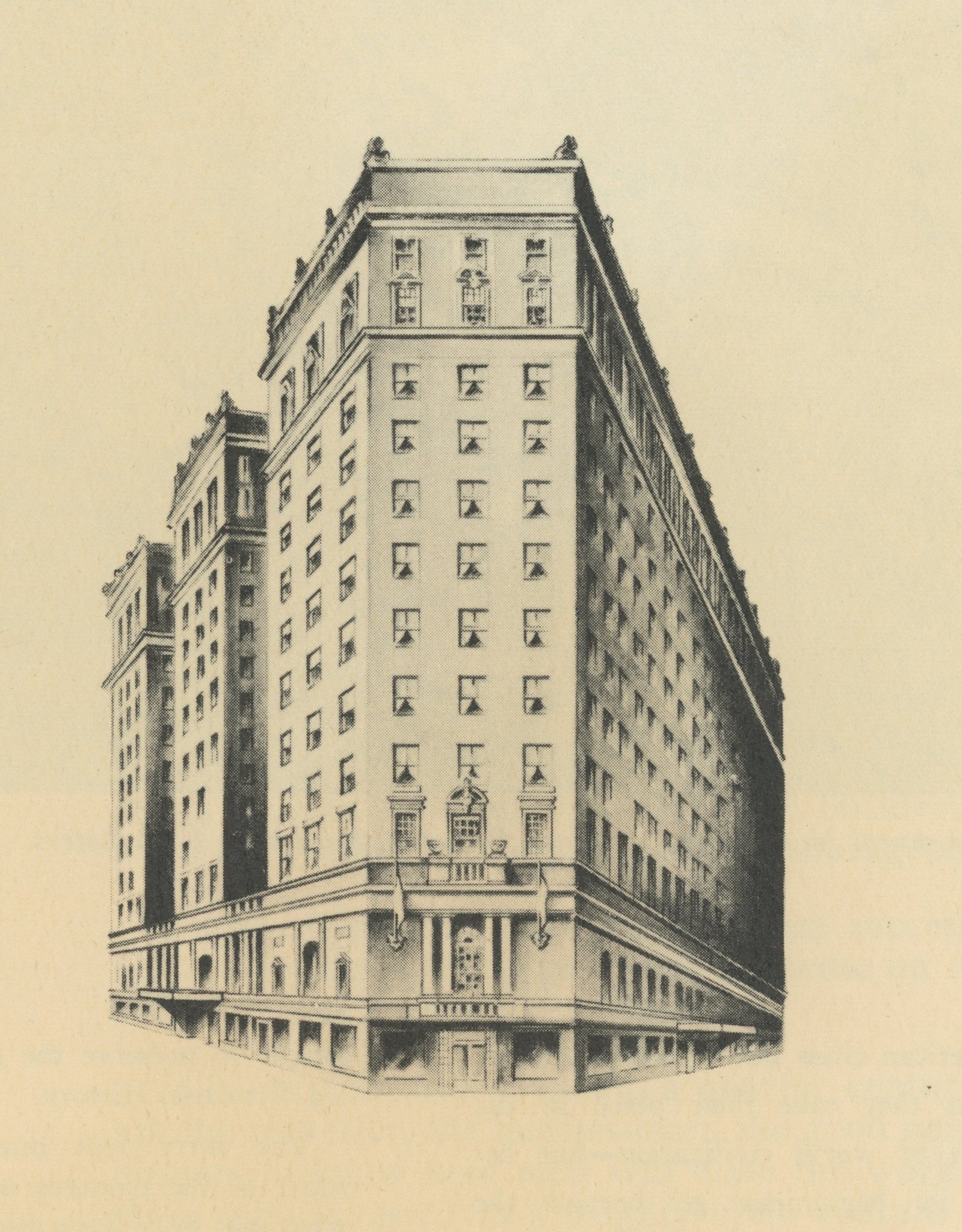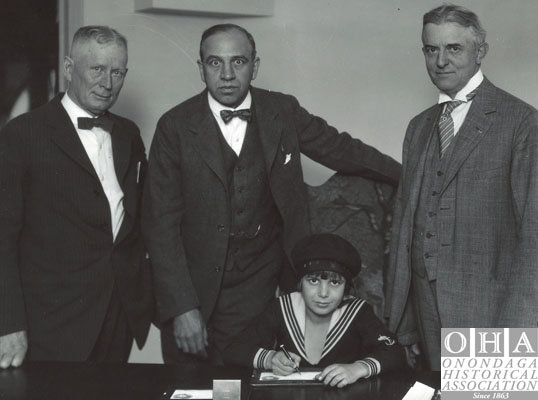
Certainly one of the hot topics in recent weeks has been the coming together of plans to finally launch the long-anticipated restoration and re-use of the closed Hotel Syracuse. The hotel is one of those grand lodging edifices which were built in the early 20th century, before the Great Depression, World War II and the birth of interstates and suburban sprawl put an end to downtown buildings of that grandeur.
The fondness that exists in this community for the Hotel Syracuse’s re-birth was in great evidence over the recent holiday season when over 900 people paid to tour the hotel via an Onondaga Historical Association “Ghost Walk.” The event, which featured actors and actresses portraying characters from the hotel’s past, brought life and humor back to the empty spaces, while letting patrons experience some of the landmark’s rich history.
When the hotel was about to open in 1924, there was great anticipation in the community, and a real sense of pride. Hotel management hosted a formal opening banquet in the Terrace Dining Room (now known as the Persian Terrace) as the 11th floor Grand Ballroom was not quite finished. But who would the first official guest be? Management wanted a public relations triumph. The President? Probably too much of a reach. The governor? Maybe he was too busy. How about Uncle Fester? Uncle Fester! From the Addams Family?! Although he wouldn’t be known by that name for another 40 years, they did get his much more famous younger version – “The Kid.”
Confused? It’s a generational thing. You see, the actor who portrayed Uncle Fester in the 1960s dark comedy TV series, The Addams Family, was Jackie Coogan. Coogan had actually been more famous back in the 1920s when he co-starred in a popular silent movie starring Charlie Chaplain titled, The Kid. Chaplin wrote, produced, directed, edited and starred in the classic film. It is a sentimental comedy in which the 6-year old Coogan, who played the title role, captured America’s heart.
Why Coogan? Aside from his national star status at the time, Coogan had strong Syracuse connections. His family had resided here for a couple of generations and in 1924 his grandparents still lived in Syracuse, at 210 Wayne Street, a house which still stands. Jackie’s father, John Henry Coogan, Jr., was a vaudeville performer. He traveled the circuit but the family was often based in Syracuse. Jackie was actually born in Los Angeles, but he and his family lived in Syracuse for several months, during the 1917-1919 period, with his grandparents on Wayne Street. Jackie’s family was back in Los Angeles in 1920 as his career was taking off.
Coogan was cast in other child roles in several more films during the 1920s, but as he grew older, his career waned. After his father’s sudden death in a 1935 auto accident, he sought some of the $4 million fortune he had already earned. Unfortunately, his mother and her new husband had the rights to it. He had to sue, but gained only a relatively small out-of-court settlement. The incident resulted in California legislation in 1939 to protect the earnings of child stars, still known as the Coogan Act. He remained a Hollywood figure, however, in part due to his later, brief marriage in 1937 to famous actress Betty Grable.
Lesser known is that during World War II he served in the Pacific Theater as the army pilot of a troop transport glider. He appeared here in Syracuse, in uniform, for a special bond drive and morale-boosting campaign during late 1944.
His career seemed over in the 1950s as he took bit parts, but rose to prominence again with his classic portrayal of Uncle Fester in the popular Addams Family TV series from 1964 to 1966. After that, he would continue making appearances on a number of television shows and in a handful of movies as a character actor. Coogan passed away in 1984.
Ironically, even though he signed a guest card as the first official guest at the Hotel Syracuse in 1924 and posed in a hotel room bed removing his shoes, he reportedly did not actually stay overnight in the Hotel Syracuse.
The original special Coogan guest card is special part of the OHA collection.


